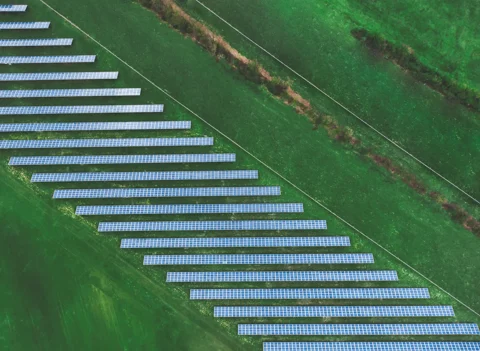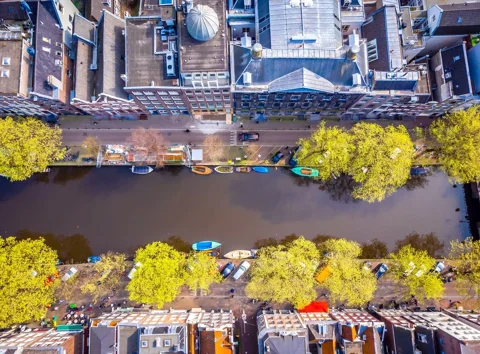Current topics with regard to the economy, investment (responsible investment in particular), pensions, and income: Every week, an expert at APG provides a clear answer to the “Question of the week”. This week: Joost Slabbekoorn (Senior Responsible Investment & Governance Manager) examines the probability of the Glasgow Climate Summit producing concrete results. “Financial support of developing countries will be one of the most hotly disputed items.”
On the eve of the Glasgow conference, news items are following one another at a hitherto unprecedented pace. If one thing has become clear from this cascade of reports, it is this: We are not in good shape. The countries participating in the Paris Climate Conference in 2015 had agreed that the global temperature should not rise by more than 2 degrees by 2100, and ideally by no more than 1.5 degrees. If we continue at our current pace, we will reach that 1.5-degree rise as early as in 2030. The UN’s UNEP environmental program warned that the 2.7-degree mark will even be in sight by 2100 if we do nothing.
First Step
There is plenty of work to be done. However, the question is: Who will be taking the first step? “Historically speaking, responsibility for CO2 emissions lies primarily with Western countries. Nevertheless, countries such as China and India, above all, are currently registering a rapid increase in CO2 emissions. These countries cannot develop in the same fossil fuel-driven way as Western countries did in the past. They are simply too big for that. However, the rapid increase in CO2 emissions in those countries can also be attributed to the relocation of European steelworks to China!”
Countries such as India and China are able to partially shore up their development with renewable energy. Western countries at the Paris conference pledged 100 billion euros per year in climate development aid to support them in this. That promise has, however, not yet been kept. Slabbekoorn explains, “Chances are that this will also be one of the most hotly debated topics in Glasgow. Developing countries want rich countries to provide them with financial support in order to restore confidence. The ‘trade’ in targets between countries will be another topic of discussion. In this scenario, rich countries contribute to the reduction of CO2 in developing countries, because it is cheaper and easier to reduce these emissions there than on their own territory. Unambiguous rules are needed to facilitate this trade and to be able to verify it.”
Priorities
Slabbekoorn can identify a number of points on which action is needed. “One of the most important priorities is to phase out the use of coal for the production of electricity. Coal produces quite a lot of CO2, even though a good alternative is available: green electricity. Deforestation is another source of huge CO2 emissions. A third priority is to set a realistic price on CO2 and to stop funding the fossil fuel industry. It is remarkable that people in the Netherlands are currently provided government support to pay their energy bills. This is understandable, given the current situation, but it does mean that the government is indirectly funding fossil energy. Rising energy prices are also making many countries reluctant to accelerate the termination of coal use. And combating deforestation requires the support of Brazil. Unfortunately, Brazil currently has a president who is a champion of the logging sector. In short, things are not looking good in Glasgow when it comes to these three priorities.”
With the current gloomy outlook, it is inevitable that some measures will be impacting the lives of consumers. Slabbekoorn explains, “It is imperative that consumers are inconvenienced; otherwise, they will not change their behavior. And the sooner the transition to a more sustainable world is initiated, the less money and effort it will cost. Ultimately, this will also be more pleasant for the consumer. If we don’t take action now, we will have to intervene much more strongly later on. Then the break with our current way of life will be a lot more dramatic, through significantly higher costs for governments and consumers, for example.”
Reluctance
If the outcome of summit produces few or even no results, further global warming appears to be inevitable. “But there are many more roads leading to Paris,” Slabbekoorn argues. “If it nevertheless turns out that no agreement will be reached in Glasgow, this does not have to mean that remaining within the aforementioned 1.5-degree limit is impossible. A much stricter policy on energy and sustainability will therefore need to be imposed in the coming years. And the question is whether such policies will indeed be taken into effect, considering that countries are showing quite a bit of reluctance when it comes to adopting overly strict measures. In the meantime, we are already noticing the physical effects of higher temperatures.
It is ultimately up to the countries participating in the climate summit in Glasgow to incorporate possible agreements into their legislation. The Paris climate agreement is legally binding, but there is no international instrument to enforce it. “Once these agreements are embedded in national legislation, a country can be held to them by the courts. We saw this in the Netherlands in regard of the case brought by Urgenda against the Dutch government. Diplomatic contacts are very important during a summit like this. Still, this brings us back to the first point, which is who will be taking the first step. It doesn't look as if ‘Glasgow’ will produce any concrete results, but you can never predict what will happen at a summit like this. So, I’m keeping my fingers crossed,” says Slabbekoorn.



